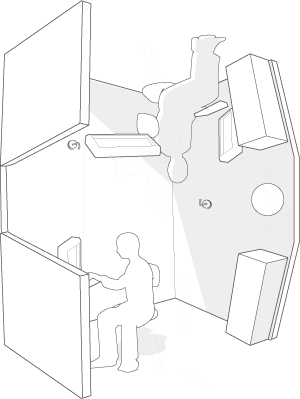|
The rules of coding will literally be stood on their head at the Copernicus Center, as the absence of gravity plays havoc with the normal ordering of data. Search results lacking in substance may rise to positions of prominence while those possessed of a desirable gravitas may become negatively buoyant. Simple computing exercises, such as building a list inverter become problematic when "up" or "down" are not clearly defined, and subroutines are disrupted when values increment six times faster than in Earth gravity.
Obviously, a new set of tools for computing in the unforgiving conditions of deep space is needed. This month, Google will release version 10.0 of an operating system that has been optimized for the demands of extra-terrestrial computation. Known as "Luna/X," the new command architecture is impervious to radiation, low gravity, absolute zero temperatures and airless environments. Even the most intricate scripts coded in Luna/X can withstand the harsh conditions of lunar operation for months, if not years.
Luna/X will be made available to terrestrial developers free of charge and a testing environment will be constructed to replicate the conditions under which the code will likely be deployed. Through a partnership with an as yet unnamed hamburger chain, Luna/X engineers will be able to simulate a lunar work environment by ingesting tasteless freeze-dried nutritional byproducts while coding in noisy, crowded quarters suitably lacking any trace of atmosphere.
 |
Space is no place for normal code. Luna/X runs with 99% reliability at near absolute zero temperatures
|
|
|
 |
|

|


